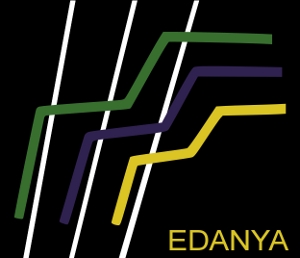Program and Timetable
SESSION 1: SUCCESS CASES
Grupo de investigación en Optimización FQM-329
Emilio Carrizosa
(Universidad de Sevilla)
CASE 1: "Identification of models in chemical reaction processes" Repsol and FQM329 group
09.30 - 09.50
The team funded by projects "Global Optimization. New Algorithms and Applications" (P11FQM7603, Junta de Andalucía) and "Models and Methods of Mathematical Programming and Applications" (MTM201236163, Ministry of Economy and Competitiveness) has among its objectives the mathematical modeling of industrial problems and their resolution using a wide range of techniques Statistical data Analysis (including Big data) and mathematical Optimization.
This work has been possible thanks to contracts and projects with, among others, Repsol SA, Abengoa Solar NT and Junta de Andalucía. In this presentation, we will describe some of the specific issues that have been raised in the three contracts incurred to date with REPSOL SA so as the technological response that the team has provided.

Manuel Castro
(Universidad de Málaga)
CASE 2: "Simulations of Tsunamis". INGV and FQM216 group.
09.50 - 10.10
In this talk, we present our collaboration with INGV (Istituto Nazionale di Geofisica e Vulcanologia of Italy) whose objective is the design of a FTRT model for the Italian tsunami early warning system at the Centro Allerta Tsunami (CAT). The numerical model used for this purpose, named Tsunami-HySEA, implements in the same code the three phases of an earthquake-generated tsunami: generation, propagation and coastal inundation. The HySEA model uses nested meshes with different resolution and multi-GPU environment, which allows many FTRT simulations, computing within a few minutes wall clock time the evolution of a seismically generated tsunami in the whole Mediterranean Sea.
Tsunami-HySEA is becoming more popular among the tsunami-modeler community and now it has been integrated at GDACS (Global Disaster Alert and Coordination System) at JRC, TRIDEC cloud at GFZ (German Research Centre for Geosciences) and IGN (Instituto Geográfico Nacional), among others.

Justo Puerto Albandoz
(Universidad de Sevilla)
CASE 3 "Optimization of a delivery network". Ghenova and FQM331 group
10.10 - 10.30
There are nowadays a lot of practical situations where it is necessary to design a communication network for the construction of electronic devices, vehicles and large infrastructures. Specifically, we refer to the design of overlapping networks to distribute several commodities that cannot mix nor flow together. The goal of this project is to use Mathematical Programming tools the develop decision support modules for helping decision-makers to design pipelines in the process of construction of large vessels.

Miguel Camacho
(Inspector del Cuerpo Nacional de Policía)
CASE 4 "Predictive mathematical models of criminal risk". Cuerpo Nacional de Policía y Dpto. Estadística e Investigación operativa of the University of Granada
10.30 - 10.50
The Problem of Police Districts (PDP) refers to the efficient and effective design of the patrol sectors in terms of performance attributes, such as workload, response time, etc. A balanced definition of patrol sectors is desirable, as it results in crime reduction and better service. In this talk, we will present a multi-criteria problem for the Design of Police Districts. It has been developed in collaboration with the National Police applied in a case study of the Central District of Madrid.
SESSION 2: MATHEMATICAL TECHNOLOGICAL OFFER
Math-in network
11.10 - 11.40
The Spanish MathematicsIndustry network (Mathin) was created as a private nonprofit association, the September 30, 2011 with the signing of the Memorandum of Association in Santiago de Compostela.
At present the network formed around thirty research groups belonging to twenty different Spanish universities.
Mathin focuses on promoting and carrying out mathematical technology transfer to business and industry, thus encouraging the increased competitiveness of both research groups involved and the industry itself.
Research groups
11.40 - 13.30
Each research group will present their abilities to carry out design and production processes that are applicable in the broader context of the industry.
- FQM120 - Mathematical Modeling and Simulation of Environmental Systems (Tomás Chacón)
- FQM241 - Location Research Group (Francisco Ortega).
- FQM315 - Theoretical and Numerical Analysis of Models in Experimental Sciences (Francisco Ortegón y Jesús Medina)
- FQM229 - Approximation theory and orthogonal polynomials (Andrei Martínez).
SESSION 3: DISCUSSION
Discussion session Industries-Mathematics research groups.
13.30 - 14.30
- Abengoa
- Ghenova Ingeniería
- Plicía Nacional
- Puerto de Sevilla